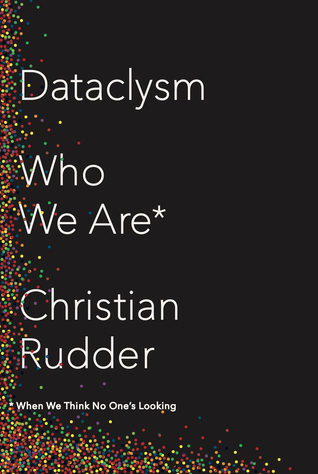What do you think?
Rate this book


304 pages, Hardcover
First published September 9, 2014
If you read a lot of popular nonfiction, there are a couple things in Dataclysm that you might find unusual. The first is the color red. The second is that the book deals in aggregates and big numbers, and that makes for a curious absence in a story supposedly about people: there are very few individuals here. Graphs and charts and tables appear in abundance, but there are almost no names. It’s become a cliché of pop science to use something small and quirky as a lens for big events—to tell the history of the world via a turnip, to trace a war back to a fish, to shine a penlight through a prism just so and cast the whole pretty rainbow on your bedroom wall.
I’m going in the opposite direction. I’m taking something big—an enormous set of what people are doing and thinking and saying, terabytes of data—and filtering from it many small things: what your network of friends says about the stability of your marriage, how Asians (and whites and blacks and Latinos) are least likely to describe themselves, where and why gay people stay in the closet, how writing has changed in the last ten years, and how anger hasn’t. The idea is to move our understanding of ourselves away from narratives and toward numbers, or, rather, to think in such a way that numbers are the narrative.
